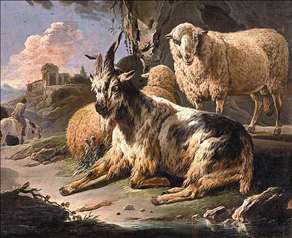1ST SUNDAY OF ADVENT – B
(Mk. 13:33-37)

To listen to the Australian Catholic Radio Online:
http://cradio.org.au/index.php/resources/homilies/first-sunday-of-advent/
There are three kinds of time: CHRONOS, COSMOS and KAIROS. Chronos refers to historical time which is determined by the units of second, minutes, hours, day, months, years, etc which are unrepeatable. Cosmic time refers to events or cycle that may be celebrated like birthdays, anniversaries or foundation days hence repeatable. Kairos is a spiritual time; it is a time of grace when we encounter God through special events in our lives. Advent is both cosmic because it is part of a cycle that we celebrate year after year and also kairos because it is special season in the Church which brings about grace and blessing.
http://cradio.org.au/index.php/resources/homilies/first-sunday-of-advent/
There are three kinds of time: CHRONOS, COSMOS and KAIROS. Chronos refers to historical time which is determined by the units of second, minutes, hours, day, months, years, etc which are unrepeatable. Cosmic time refers to events or cycle that may be celebrated like birthdays, anniversaries or foundation days hence repeatable. Kairos is a spiritual time; it is a time of grace when we encounter God through special events in our lives. Advent is both cosmic because it is part of a cycle that we celebrate year after year and also kairos because it is special season in the Church which brings about grace and blessing.
As we enter Advent, we open the new liturgical calendar in the Church. Advent comes from the Latin word “adventus” which is the coming of a very special person. So we are not waiting for an event nor a date but God Himself who is about to come. The Church offers us this season in preparation for such coming.
The parable this Sunday is about the Doorkeeper. In Palestine, the doorkeeper is in charge of watching the property most especially at night to secure the household against robbery or theft and to open the door should the master arrive home late. Therefore the main characters of the doorkeeper are watchfulness and vigilance.
Jesus is the master of the house who is on a long journey and his “prolonged absence” will end with a glorious and sudden return which is the Parousia. Every Christian is a doorkeeper who awaits the return of Christ. Just as a doorkeeper must watch and be vigilant because he does not know the time of his master’s return, so also Christians must be watchful because they do not know the time when Christ will come again.
To be spiritually awake is to be conscious of our personal encounter with Christ in all the events of our lives, great or simple they may be. How can we remain spiritually awake? Firstly we have to be attuned to the task given to us just like the doorkeeper is attuned to the task of guarding the security of the house and being watchful for the possible return of his master. Secondly, we turn our attention to the future, that is, the final goal of our life which is our destiny.
Our whole existence is a waiting for God who is our future and our destiny. Sad to say that some people live as if there is no God either in the present nor in the future so their lives are determined by their own personal belief without spirituality. They are like tourists who are busy preparing their luggage but they do not know where to go because they do not have a destination.
As doorkeepers, we are also pilgrims who are aware that the end of our life’s journey, the time of our death, will be the moment of Christ’s Parousia for us. As we await for our definitive and personal encounter with Christ, our attitude is not of fear but of expectant joy and full of hope just like when we await the coming of a long expected beloved.


